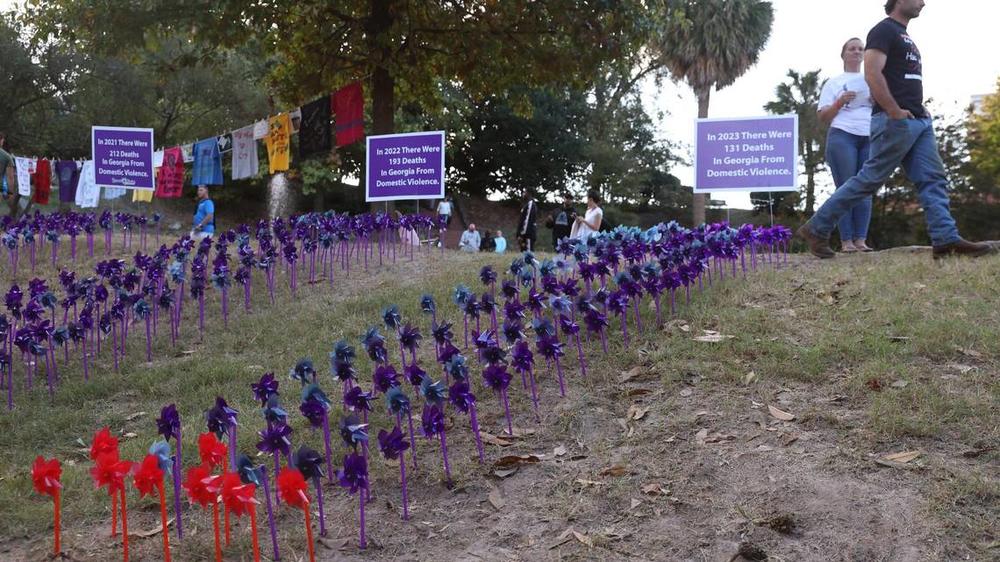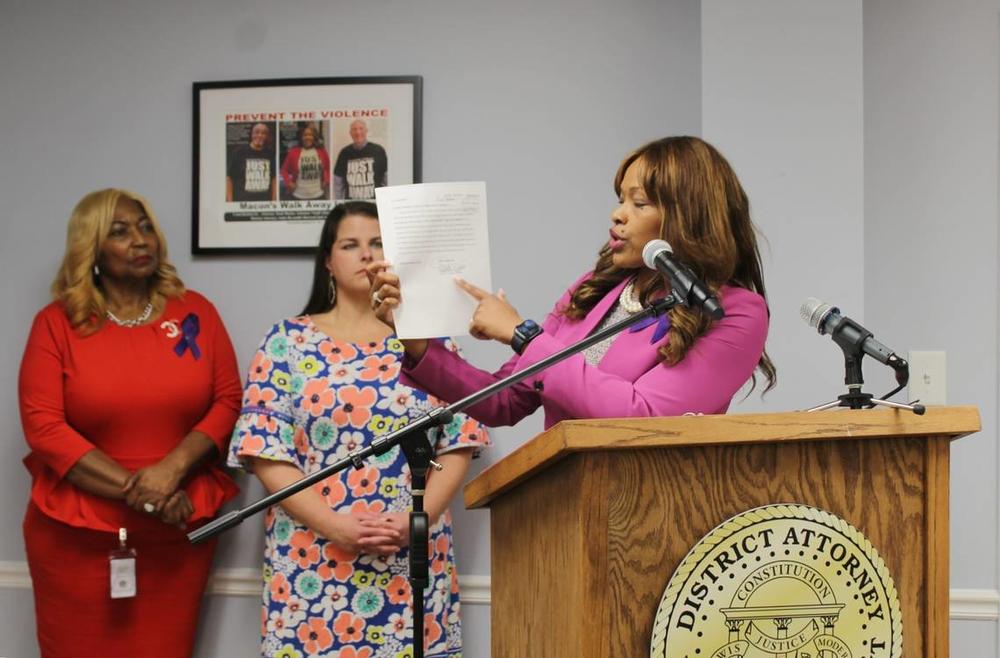
Caption
A vigil attendee walks by the pinwheel project as a part of the Domestic Violence Awareness Month candlelight vigil in Washington Square Park on Tuesday, Oct. 29, 2024, in Macon, Georgia. Each pinwheel represents one death from domestic violence in Georgia and the red pinwheels represent deaths in Middle Georgia.
Credit: Katie Tucker / The Telegraph


